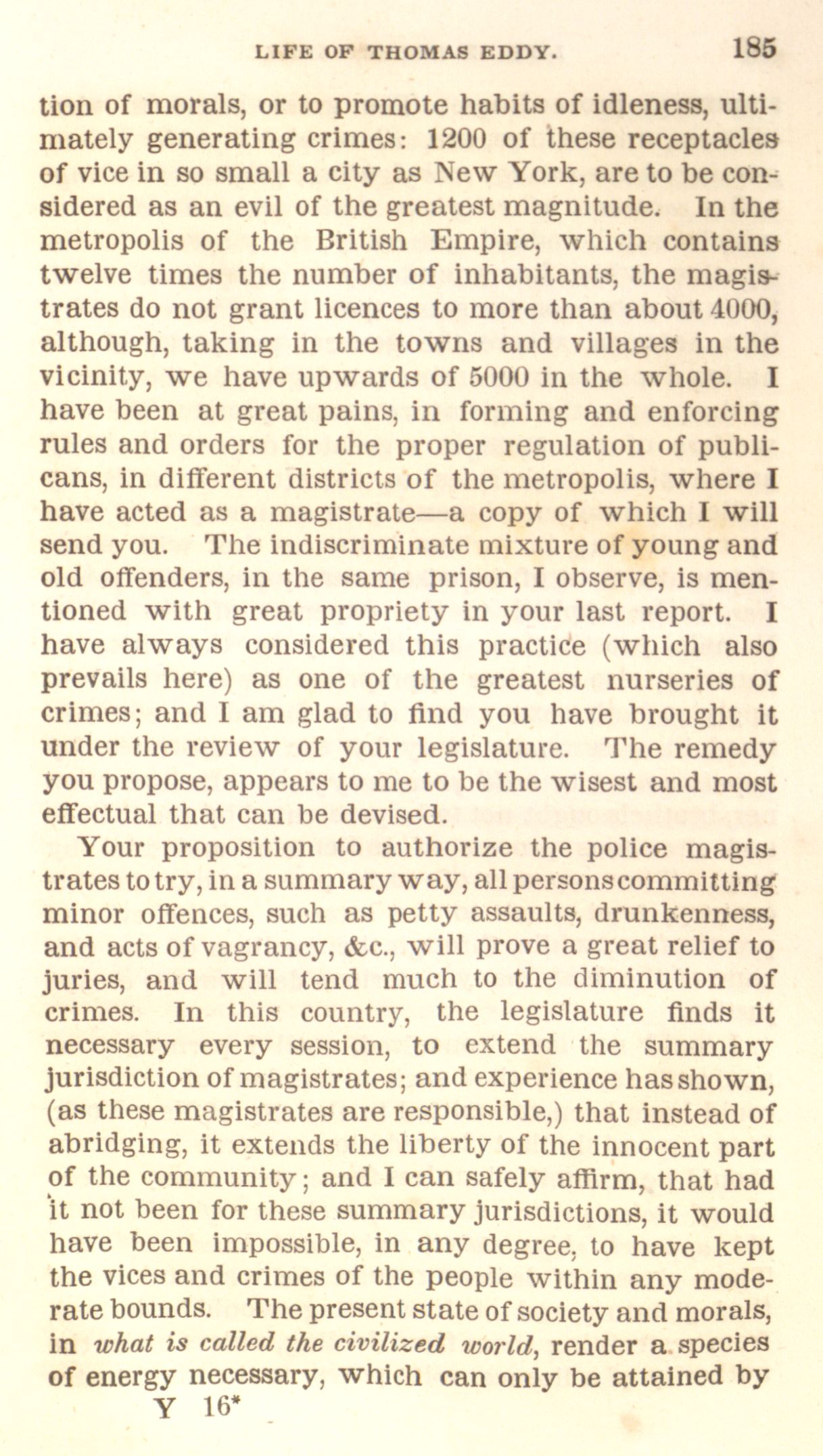tion of morals, or to promote habits of idleness,
ulti-
mately generating crimes: 1200 of these receptacles
of
vice in so small a city as New York
sidered as an evil of the greatest magnitude. In the
metropolis of the British Empire, which contains
twelve times the number of inhabitants, the magis-
trates do not grant licences to more than about 4000,
although, taking in the towns and villages in the
vicinity, we have upwards of 5000 in the whole. I
have been at great pains, in forming and enforcing
rules and orders for the proper regulation of publi-
cans, in different districts of the metropolis, where I
have acted as a magistrate—a copy of which I will
send you. The indiscriminate mixture of young and
old offenders, in the same prison, I observe, is men-
tioned with great propriety in your last report. I
have always considered this practice (which also
prevails here) as one of the greatest nurseries of
crimes; and I am glad to find you have brought it
under the review of your legislature. The remedy
you propose, appears to me to be the wisest and most
effectual that can be devised.
Your proposition to authorize the police magis-
trates to try, in a
summary way, all persons committing
minor offences, such as petty
assaults, drunkenness,
and acts of vagrancy, &c., will prove a
great relief to
juries, and will tend much to the diminution
of
crimes. In this country, the legislature finds it
necessary
every session, to extend the summary
jurisdiction of magistrates;
and experience has shown,
(as these magistrates are responsible,)
that instead of
abridging, it extends the liberty of the innocent
part
of the community; and I can safely affirm, that had
it not
been for these summary jurisdictions, it would
have been impossible,
in any degree, to have kept
the vices and crimes of the people
within any mode-
rate bounds. The present state of society and
morals,
in what is called the civilized
world, render a species
of energy necessary, which can
only be attained by

